Anger as Government tries to get tour operators to pay £60m Monarch repatriation bill
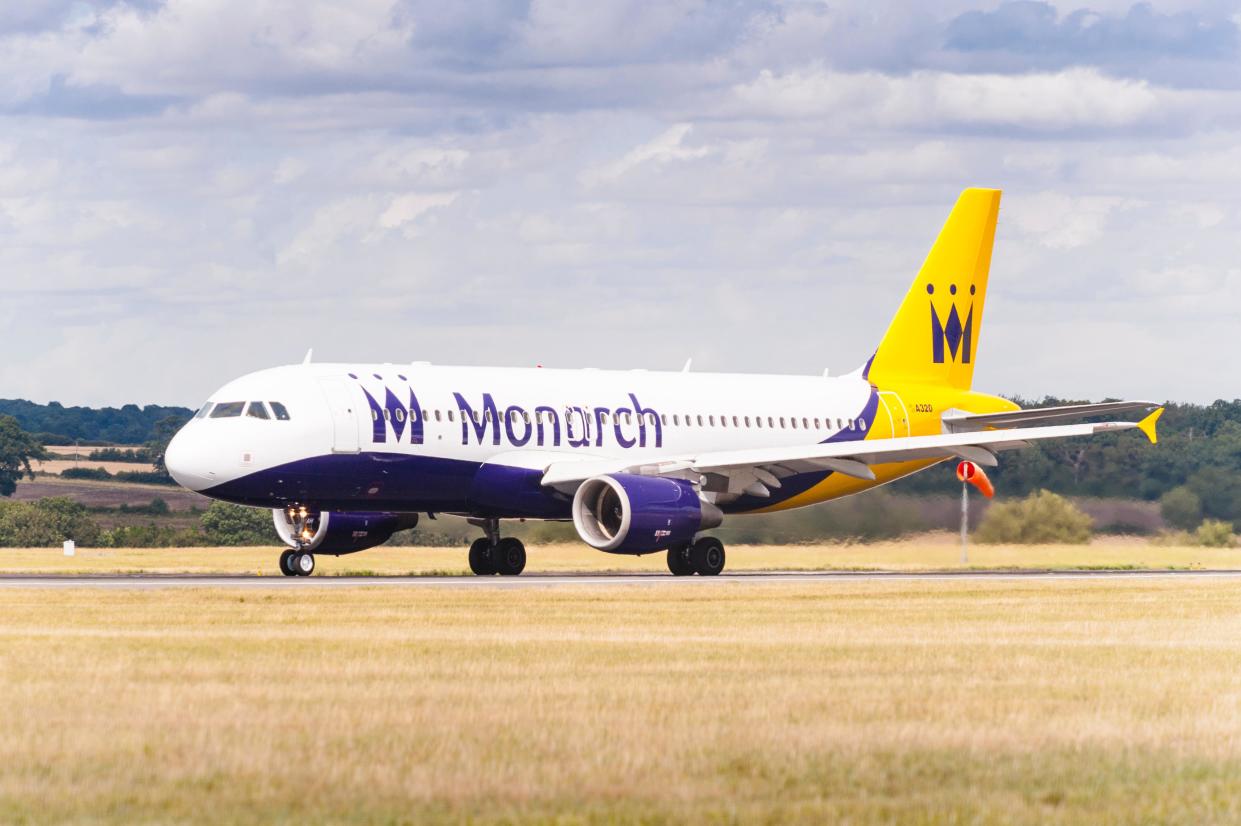
The Government has come under fire for asking travel firms to help foot the £60 million bill it is facing for flying home more than 80,000 passengers left stranded overseas by the collapse of Monarch.
The two-week airlift saw 567 flights organised by the Civil Aviation Authority (CAA) after the airline ceased trading - the last of which was a service from Tel Aviv carrying 122 passengers that arrived at Luton Airport this morning.
The Government said that no passenger would have to pay for their replacement flight home, despite the fact that many had booked holidays not covered by the Air Travel Organisers Licence (Atol) scheme, which protects holidaymakers in the event of a tour operator failure. Instead, it hopes some of the money will come from travel firms.
Derek Moore, chairman of the Association of Independent Tour Operators (AITO), suggested the timing of the collapse - on the first day of the Conservative Party conference - had been a key factor behind the Government's decision.
He told The Independent: “When Monarch goes down, and the majority of seats are seat-only and therefore not covered [by Atol], I can only assume that because the Conservatives were having a conference, and because they’ve got a slim majority and are not very popular, they decided to take some decisive action. And they ordered that people be flown home.”
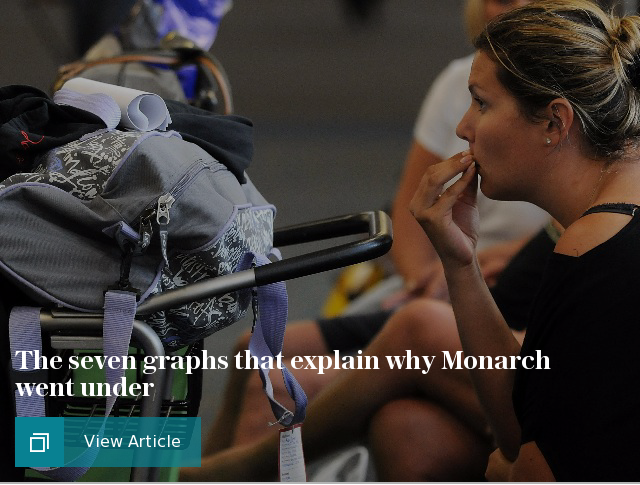
Those who bought a Monarch flight as part of a package with an Atol certificate have financial protection. At the time of the collapse, the CAA estimated that around 50 per cent of customers affected would have “some form of Atol protection”, with up to 20 per cent having booked a package direct through Monarch and the remainder having booked through other tour operators that also offered cover. For each Atol-protected holiday sold, travel firms must pay £2.50 to the CAA, with the money held in the Air Travel Trust Fund. While the fund will be used to pay for the repatriation of those who booked a Monarch package, Mr Moore said other tour operators were being asked to pay up to £250 per person to help cover the final bill.
He said: “They are now talking about, ‘You have to pay £250 as an operator for people to be repatriated.’ The travel industry is frankly disgusted.”
“While affected passengers have been told they will not have to pay to be flown back to the UK, we have entered into discussions with several third parties with a view to recovering some of the costs of this operation," Transport Secretary Chris Grayling said in a statement last week.
“The ATOL scheme will of course provide the financial cover for those with Atol protection. We are currently engaged in constructive discussions with the relevant credit and debit card providers in order that we might recoup from them some of the cost to taxpayers of these repatriation flights. We are also having similar discussions with other travel providers through which passengers may have booked a Monarch holiday,” he added.
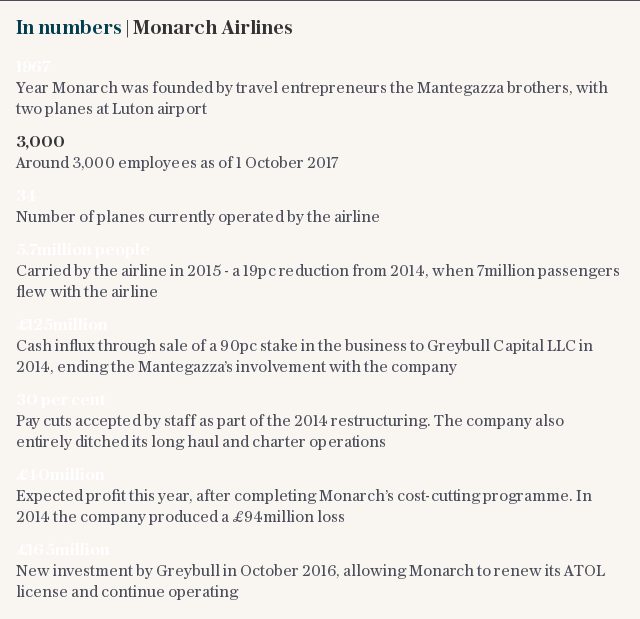
Telegraph Travel has contacted AITO and the Department of Transport for a further comment. Both groups have yet to confirm how many travel firms and which ones have been asked to pay the £250 per person fee towards the repatriation bill, and how the bill would be covered should travel firms ultimately refuse to comply.
Speaking last week at the annual Abta Travel Convention, the trade body's chief executive Mark Tanzer condemned the Government’s decision to bring all passengers back free of charge as “completely unsatisfactory” and claimed travel firms have had “no say” in the cost involved.

He said: “Only five per cent of Monarch’s passengers were travelling on Monarch package holidays, yet to the outside world Monarch was an ‘Atol-protected’ company...
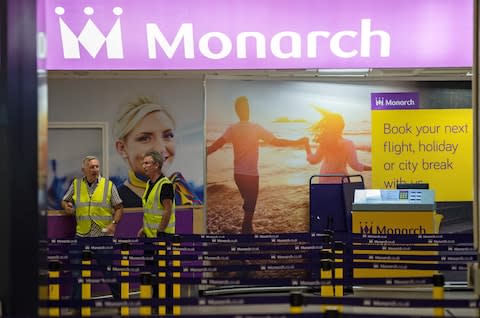
“Notwithstanding this, the Government decided that they would repatriate everyone, free of charge, and try to recoup as much as it could from Atol holders and credit card companies, who were not consulted, and certainly have had no say in the cost incurred.”
He also noted out how the move undermines the Atol scheme, asking: “What is the point of Atol protection if everyone gets brought home anyway? Customers will expect the same free repatriation in the event of future airline failures.”
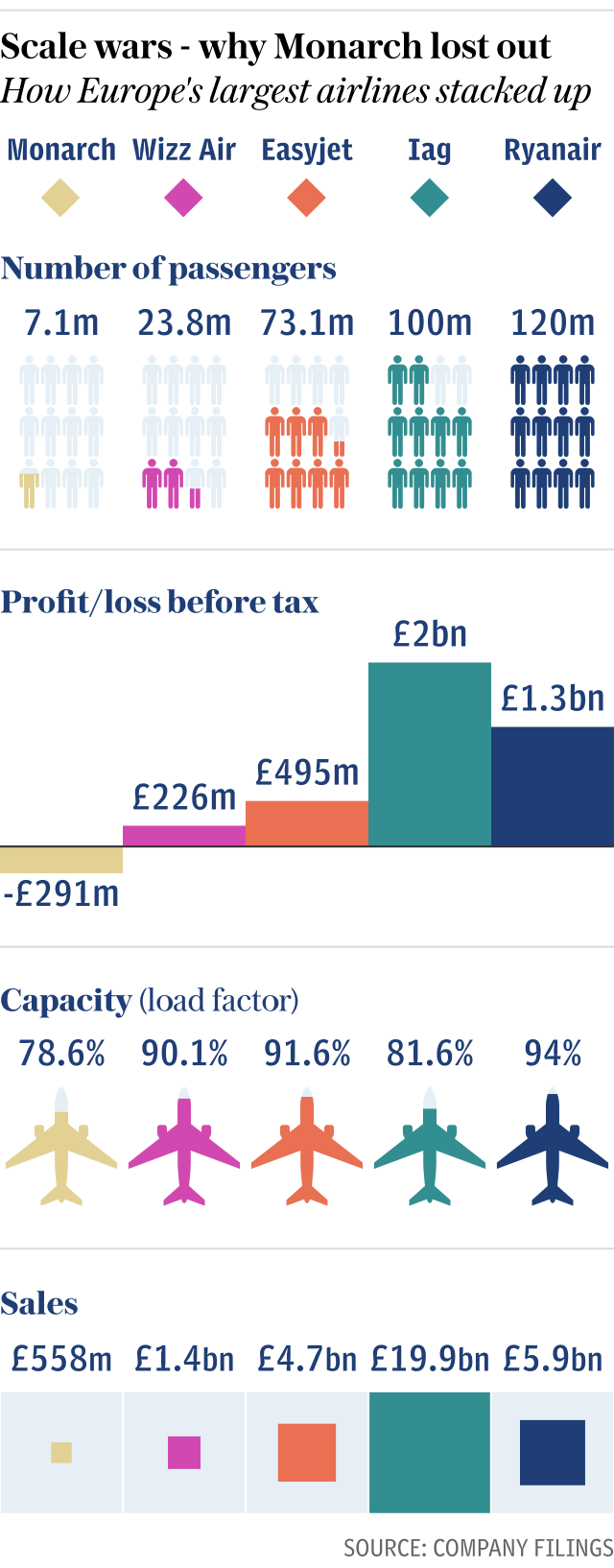
How will future passengers feel the impact of the £60m repatriation bill?
“It is Britain’s biggest airline failure yet, with another 750,000 due to travel in the next few months now left without flights, and some without refunds. In the meantime the German low-cost operator AirBerlin and the Italian flag-carrier Alitalia – which operate under different financial rules from British airlines – are both in administration,” says Nick Trend, Telegraph Travel’s consumer expert.
“My concern is that fewer airlines means less competition and ultimately higher prices. We need a strong corpus of rivals to keep the pressure on.
“But the competition model isn’t yet broken – Jet2, Vueling and Wizz Air continue to fly head-to-head with their bigger rivals – and British Airways remains focused on trimming its offering in economy class to keep its costs and fares down.”

 Yahoo News
Yahoo News 
